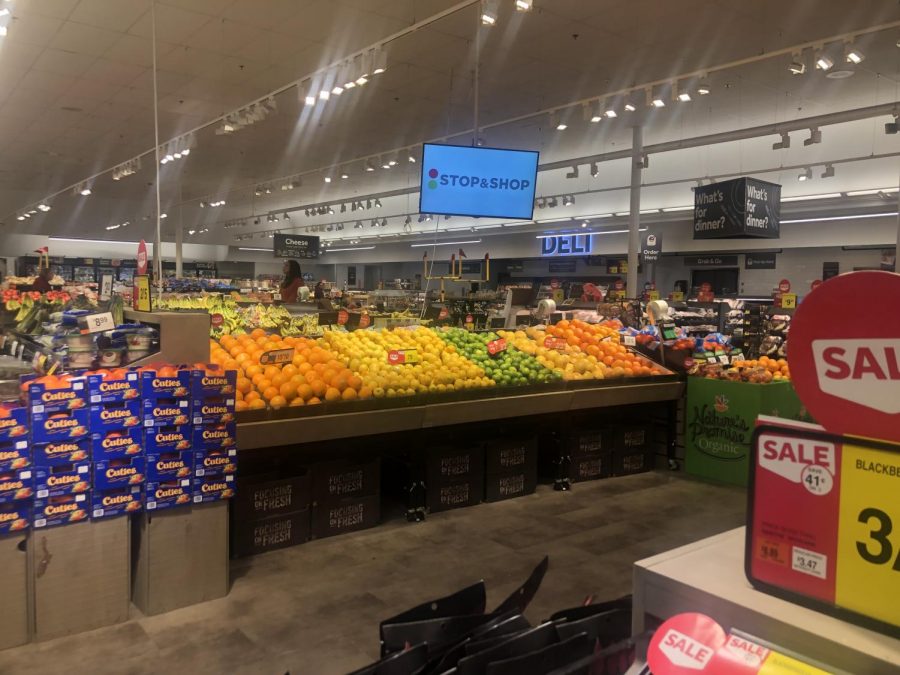Proposed Grocery Tax Causes Concern Among Students
Recently inaugurated Governor Ned Lamont is considering adding a sales tax on groceries.
February 4, 2019
In an attempt to address Connecticut´s growing budget deficits, Governor Ned Lamont is considering adding a sales tax on groceries. It’s an idea that, if made reality, will be the very first time groceries are taxed in the state.
Currently, the sales tax is at 6.35 percent, which was set in 2011 by Lamont’s predecessor, Dannel Malloy. The tax being proposed by Lamont could set the sales tax on groceries at 2 percent, as recommended by the Commission on Fiscal Stability and Economic Competitiveness. Estimates from this commission also suggest that the grocery tax can add another $148 million in revenue.
In the 2018 campaign trail, Lamont said he wants to provide property tax relief and promised to not raise the state’s income tax. Although it is not certain if the grocery tax will make it in the governor’s final budget proposal, which is due mid-February, this can be one of several options Lamont is taking to balance the budget.
“In order to build a better budget — one that will attempt to provide the much-needed stability for economic growth through the next two years and through the next decade — we need to explore new and different options,” Chris McClure, spokesman for the governor’s budget office, told reporters. “This means leaving no stone unturned, and engaging in all necessary conversations so we can evaluate and analyze ways to achieve and retain balance.”
Lamont publicly responded to the reports about the sales tax on groceries last Wednesday, saying that “everything is on the table.”
Lamont’s proposal, however, has drawn criticism from Republican lawmakers who argue that a simple grocery trip can be a hit to people’s pockets. Central Connecticut students also shared some concerns.
Lucas Larcheveque, a CCSU graduate student, said that this proposal will be hard for many students who have to pay for groceries in addition to paying for college.
“Although there is a population that can handle that sort of tax, there is a large population that will not benefit from the grocery tax,” Larcheveque said. “Students are paying for a lot already so this grocery tax can just add on to it, especially that there are kids who already work two jobs to make ends meet in college. It will just make things more difficult for this part of the population.”
Another CCSU graduate student, Bobby Scandura, said that this tax will require people to rethink about what they really need to spend in groceries.
“People would still buy certain items like milk, bread, deli meat and stuff they’d normally eat on a daily basis,” Scandura said. “I think people would probably think a lot more about spending on certain things that they don’t really need. It would have to depend on what the price after the sales tax is on the items. If it’s not a big difference at all then people will still buy the things they normally do, but maybe cut back on some things they don’t really need also.”
CCSU freshman Xristos Karasoulis said he’s concerned about the extra money that will have to come out of his pocket if the proposition actually goes into effect.
“As a college student with little financial leeway, this deeply discourages me because I will have to spend more money out-of-pocket in a climate that does not allow or help encourage it. I feel discourages ’cause that’s more money I will have to spend,” he commented.
Before Connecticut shoppers see a tax added to their groceries, the governor must present his budget to the General Assembly, where Lamont’s tax proposals will then be left in the hands of Connecticut lawmakers.






